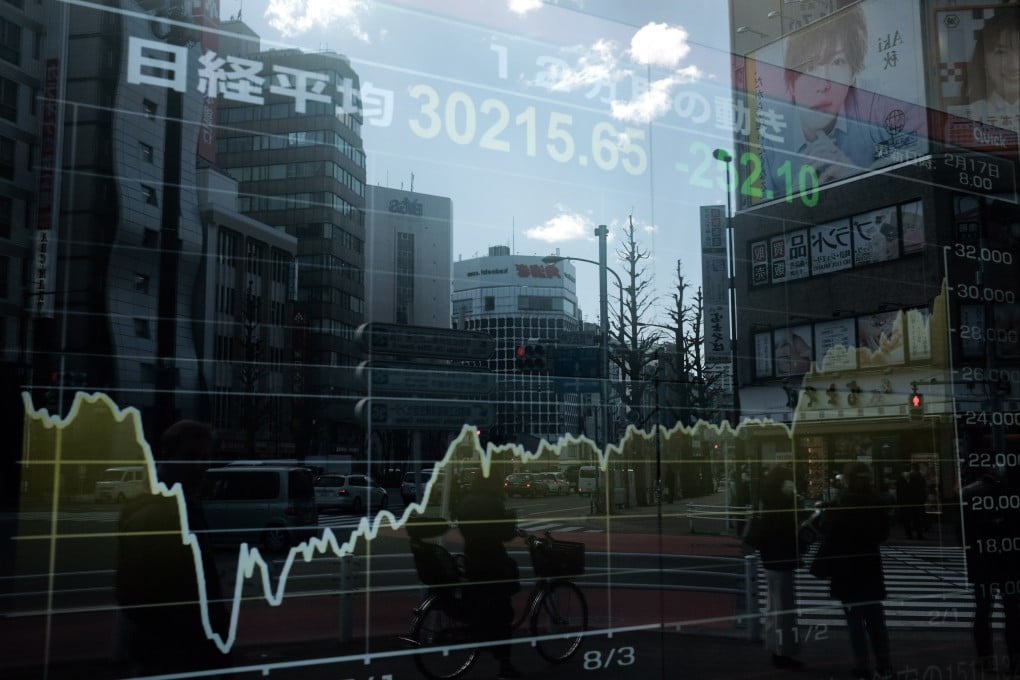Advertisement
Eye on Asia | Why Japan’s stock markets look like a good bet in an era of rising inflation
- Japan stands to gain from shifting global economic conditions in the wake of the pandemic, with growth further boosted by domestic reforms. As such, global investors should look again at Japanese equities
Reading Time:3 minutes
Why you can trust SCMP

Team Japan pulled off its best Olympic performance in the Tokyo Games, winning 27 gold medals. Likewise, in the long run, the nation’s markets are poised to perform well as they appear well-positioned for a period of higher inflation in the wake of record stimulus spending globally.
No doubt, it takes courage to forecast a revival of Japan’s stock market following decades of deflation and sluggish domestic growth that has culminated in “Japanification” becoming a byword for economic atrophy. Japan has often been seen as a market for tactical, rather than strategic, allocation.
However, the country is starting to show signs of rejuvenation. Japan stands to emerge as a net winner from shifting global economic conditions in the wake of the Covid-19 pandemic, with growth further invigorated by domestic reforms targeting structural challenges.
No doubt, it takes courage to forecast a revival of Japan’s stock market following decades of deflation and sluggish domestic growth that has culminated in “Japanification” becoming a byword for economic atrophy. Japan has often been seen as a market for tactical, rather than strategic, allocation.
However, the country is starting to show signs of rejuvenation. Japan stands to emerge as a net winner from shifting global economic conditions in the wake of the Covid-19 pandemic, with growth further invigorated by domestic reforms targeting structural challenges.
At the advent of an inflationary era, it is better positioned than most nations. The reappraisal of traditional 60/40 stock-bond portfolios is prompting global investors to take a new look at Japan’s diversification appeal.
The rise of inflation represents a paradigm shift in a world recovering from Covid-19, following unprecedented fiscal and monetary stimulus.
Advertisement
“Japan, Inc” stands to benefit from future price increases, with a benchmark equity index tilted towards sectors that tend to outperform in periods of rising inflation, such as carmakers, machinery companies and producers of consumer durables.
Automotive-related stocks, which account for about 10 per cent of the Topix index, have historically had a positive correlation with inflation among all sectors. In previous inflationary periods, Japanese manufacturers have been able to retain impressive pricing power and pass on the impact of cost increases to customers around the world.
Advertisement
In response to inflationary pressures, central banks are signalling a tapering of quantitative easing, but this alone might do little to alter the course of long-term price increases. Before long, interest rates should rise across the maturity curve and this could turn a long-standing drawback of Japan into a new edge – it has one of the lowest levels of corporate debt among major economies.
Advertisement
Select Voice
Choose your listening speed
Get through articles 2x faster
1.25x
250 WPM
Slow
Average
Fast
1.25x

